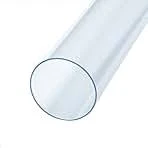Oct . 02, 2024 12:18 Back to list
Exploring the Benefits and Applications of Polypropylene Panels in Various Industries
The Versatility of Polypropylene Panels
Polypropylene panels, a product derived from the polymerization of propylene, have gained recognition in various industries due to their remarkable properties and versatility. As a thermoplastic polymer, polypropylene exhibits characteristics that make it suitable for several applications, from construction to automotive and beyond. In this article, we will explore the properties, advantages, applications, and future potential of polypropylene panels.
Properties of Polypropylene Panels
Polypropylene panels are known for their lightweight, durable, and chemical-resistant nature. This material has a low density, which means that it is easier to handle and transport compared to heavier alternatives such as metal or wood. Additionally, polypropylene is inherently resistant to many chemicals, making it an ideal choice for industries such as food processing and pharmaceuticals where cleanliness and resistance to contaminants are crucial.
Another significant property of polypropylene panels is their excellent impact resistance. They can withstand shock and stress without breaking, which is vital in applications that require durability and longevity. Furthermore, polypropylene panels offer good thermal insulation, making them suitable for applications where temperature regulation is necessary.
Advantages of Using Polypropylene Panels
One of the primary advantages of polypropylene panels is their cost-effectiveness. Compared to traditional materials like aluminum and steel, polypropylene can significantly reduce manufacturing and installation costs. Its low maintenance requirements further enhance its appeal, as it does not corrode or degrade easily over time, reducing the need for replacement and repairs.
Additionally, polypropylene panels are highly customizable. They can be manufactured in various colors, textures, and sizes, allowing them to meet specific design requirements. This customization can be particularly beneficial in architectural applications where aesthetics are equally important as functionality.
Another significant advantage is their environmental impact. Polypropylene is a recyclable material, and many manufacturers have adopted sustainable practices in its production. The reuse of polypropylene panels contributes to lower waste generation and fosters a circular economy.
Applications of Polypropylene Panels
polypropylene panel

The applications of polypropylene panels are vast and varied. In the construction industry, they are often used for wall cladding, roofing, and insulation. Their lightweight and durability make them a preferred choice for both commercial and residential buildings.
In the automotive sector, polypropylene panels are exploited for interior and exterior components of vehicles. The combination of light weight and strength helps manufacturers produce fuel-efficient vehicles without compromising on safety and durability. Furthermore, their chemical resistance is advantageous in automotive applications, where exposure to oils and other fluids is common.
Polypropylene panels are also extensively used in the packaging industry. Their ability to provide a barrier against moisture and chemicals while being lightweight positions them as an excellent choice for food packaging, pharmaceuticals, and consumer goods.
Moreover, the furniture industry has started adopting polypropylene panels in designing modern, stylish, and functional furniture. The combination of aesthetic appeal, ease of cleaning, and durability has made these panels popular in both commercial settings, such as cafes and restaurants, and residential spaces.
Future Potential
As industries continuously seek out cost-effective, durable, and sustainable materials, the future of polypropylene panels seems promising. Ongoing advancements in technology and material science are expected to enhance the properties of polypropylene, making it even more suitable for specialized applications, including in emerging fields such as renewable energy and biotechnology.
Moreover, with the growing emphasis on sustainability, the increased use of recycled polypropylene could significantly lower environmental impact, making it a more attractive option for eco-conscious designers and manufacturers.
Conclusion
In summary, polypropylene panels represent a remarkable convergence of cost-effectiveness, versatility, and sustainability. Their wide-ranging applications, coupled with their advantageous properties, make them a material of choice for various industries. As technological advancements continue to develop and the emphasis on sustainability grows, the demand and potential for polypropylene panels are likely to expand further. The future of these panels looks bright, and they will undoubtedly continue to play a vital role in innovating solutions across multiple sectors.
-
25mm PVC Irrigation Pipe - Durable & Efficient Watering Solution for Farms & Gardens
NewsJul.05,2025
-
HDPE Culvert Pipe Supplier – Durable, Leak-Proof & Easy Installation Solutions
NewsJul.05,2025
-
High Transparency PVC Clear Sheet Super Transparency PVC Sheets & HDPE Cutting Board Supplier
NewsJul.04,2025
-
High-Quality PVC-M Pipe Supplier Trusted PVC Pipe Company & 75mm PVC Connection Pipe Solutions
NewsJul.04,2025
-
PVC Transparent Sheet Roll - Durable & Flexible PVC Plastic Sheet Roll for Industrial & Home Use
NewsJun.24,2025
-
High-Quality PVC PPR Pipes and Fittings Durable ERA PPR Solutions
NewsJun.10,2025

